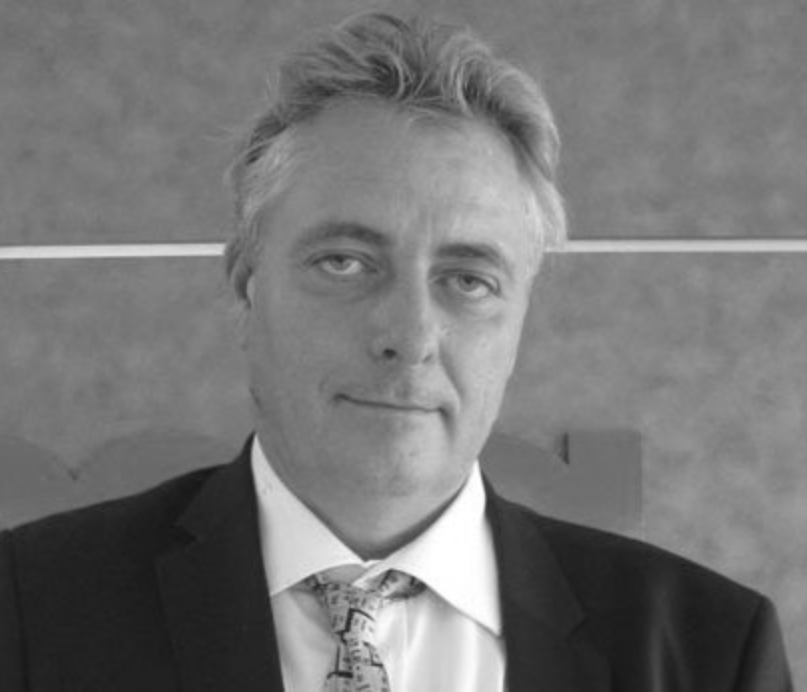Areas of Specialty:
Disabled autophagy as a hallmark of aging
Gerogenes and gerosuppressor genes
From geroscience to geromedicine
“In my opinion, the most important, though neglected risk factor of all major diseases is time. As a result, research on aging and the modulation of this parameter should be the utmost priority of biomedical research.”
Guido Kroemer, MD, PhD, PU-PH
Professor at the Faculty of Medicine of the University of Paris Descartes, Director of the Metabolomics and Cell Biology platforms of the Gustave Roussy Comprehensive Cancer Center
Guido Kroemer is currently Professor at the Faculty of Medicine of the University of Paris Descartes, Director of the research team "Apoptosis, Cancer and Immunity" of the French Medical Research Council (INSERM), Director of the Metabolomics and Cell Biology platforms of the Gustave Roussy Comprehensive Cancer Center, Deputy Director of the Cordeliers Research Center, and Hospital Practitioner at the Hôpital Européen George Pompidou, Paris, France.
Prior to joining INSERM (1994), Guido Kroemer was Senior Scientist of the European Community at the Spanish National Research Council (CSIC), at the National Center of Molecular Biology (1990-1992) and at the National Center of Biotechnology (1993). Guido Kroemer did his post-doctoral training in the Collège de France, Nogent-sur-Marne (1988-1989) and at the University of Innsbruck, Austria, after receiving his MD degree at the same University in 1985. He also holds a PhD degree in Molecular Biology (Autonomous University of Madrid, 1992).
Focus Areas
Dr. Guido Kroemer has made important contributions to medical research through his groundbreaking work in the fields of cell biology and cancer research. He discovered that the permeabilization of mitochondrial membranes constitutes a decisive step in programmed cell death, as well as the detailed mechanisms that make cancer cell death immunogenic in the context of successful antineoplastic treatments. In recent years, he has worked on the link between cellular stress and autophagy, as well as the stimulation of autophagy for improving health span and lifespan in model organisms.
Awards and Honors
Some of his honors include: the Monika Kutzner Prize of the Berlin-Brandenburg Academy of Sciences (1998), the Gallet & Breton Prize of the French Academy of Medicine (1999), the Descartes Prize of the European Union (2006), the Carus Medal of the German Academy of Sciences (2007), the Grand Prix Mergier-Bourdeix of the French Academy of Sciences (2007), the Lucien Dautrebande Prize of the Belgian Royal Academy of Medicine (2009), the Duquesne Prize of the French National League against Cancer (2010), the ‘Coup d'Elan’ Prize of the Bettencourt-Schueller Foundation (2011), the Léopold Griffuel Prize of the French Association for Cancer Research (2012), two European Research Council (ERC) Advanced Investigator Awards (2013+2023), the Mitjavile Prize of the French Academy of Medicine (2014), the Galien Prize for Pharmacological Research (2015), the Grand Prix Claude Bernard of the City of Paris (2016), the Brupbacher Prize for Cancer Research (2017), the ADPS Prize for Longevity Research (2017), the Baillet-Latour Health Prize (2018), the Albert Struyvenberg Medal of the European Society for Clinical Investigation (2019), the Grand Prix “Pink Rubbon” of the Estée Lauder Companies (2019), the International Prize “Lombardy & Research” (2019), which is the most important Italian research prize (1M€), the Cancer Research ASPIRE Award of the Mark Foundation (2021), and the Seneca Medal for Aging Research of the Industrie-Club Duesseldorf, Germany (2023), among others. Kroemer holds honorary doctoral degrees from the University of Buenos Aires (2011) and the University of Rome Tor Vergata (2019).
aging critical publications
Levine B, Kroemer G. Biological functions of autophagy genes: a disease perspective. Cell. 2019 Jan 10;176(1-2):11-42.
López-Otín C, Kroemer G. Hallmarks of health. Cell. 2021 Jan 7;184(1):33-63.
López-Otín C, Pietrocola F, Roiz-Valle D, Galluzzi L, Kroemer G. Meta-hallmarks of aging and cancer. Cell Metab.2023 Jan3;35(1):12-35.
Montégut L, Joseph A, Chen H, Abdellatif M, Ruckenstuhl C, Motiño O, Lambertucci F, Anagnostopoulos G, Lachkar S, Dichtinger S, Maiuri MC, Goldwasser F, Blanchet B, Fumeron F, Martins I, Madeo F, Kroemer G. High plasma concentrations of acyl-coenzyme A binding protein (ACBP) predispose to cardiovascular disease: Evidence for a phylogenetically conserved proaging function of ACBP. Aging Cell. 2023 Jan;22(1):e13751.
López-Otín C, Blasco MA, Partridge L, Serrano M, Kroemer G. The hallmarks of aging: an expanding universe. Cell. 2023 Jan 19;186(2):243-278.
Montégut L, Abdellatif M, Motiño O, Madeo F, Martins I, Quesada V, Lopez-Otin C, Kroemer G. Acyl coenzyme A binding protein (ACBP): a disease-relevant anti-aging ‘autophagy checkpoint’. Aging Cell. 2023 Jun 26:e13910.
Guarente LP, Sinclair DA, Kroemer G. Human trials exploring anti-aging medicines. Cell Metab. 2024 Feb 6;36(2):354-376.
Hofer SJ, Daskalaki I, Bergmann M, Friščić J, Zimmermann A, ... Hoffmann MH, Eisenberg T, Tavernarakis N, Kroemer G*, Madeo F. (*Corresponding author). Spermidine is essential for fasting-mediated autophagy and longevity. Nat Cell Biol. 2024 Sep;26(9):1571-1584.
Montégut L, Liu P, Zhao L, Pérez-Lanzón M, Chen H, Mao M, Zhang S, Derosa L, Naour JL, Lambertucci F, Mingoia S, Nogueira-Recalde U, Mena-Osuna R, Herranz-Montoya I, Djouder N, Baulande S, Pan H, Joseph A, Messaoudene M, Routy B, Fidelle M, Ahmed TB, Caron O, Busson P, Boulate D, Deschasaux-Tanguy M, Arnault N, Pol JG, Piaggio E, Touvier M, Zitvogel L, Delaloge S, Martins I, Kroemer G. Acyl-coenzyme a binding protein (ACBP) - a risk factor for cancer diagnosis and an inhibitor of immunosurveillance. Mol Cancer. 2024 Sep 6;23(1):187.
Kroemer G, Maier AB, Cuervo AM, Gladyshev VN, Ferrucci L, Gorbunova V, Kennedy BK, Rando TA, Seluanov A, Sierra F, Verdin E, Lopez-Otin C. From geroscience to precision geromedicine. Understanding and managing aging. Cell. 2025 Apr 17;188(8):2043-2062.

